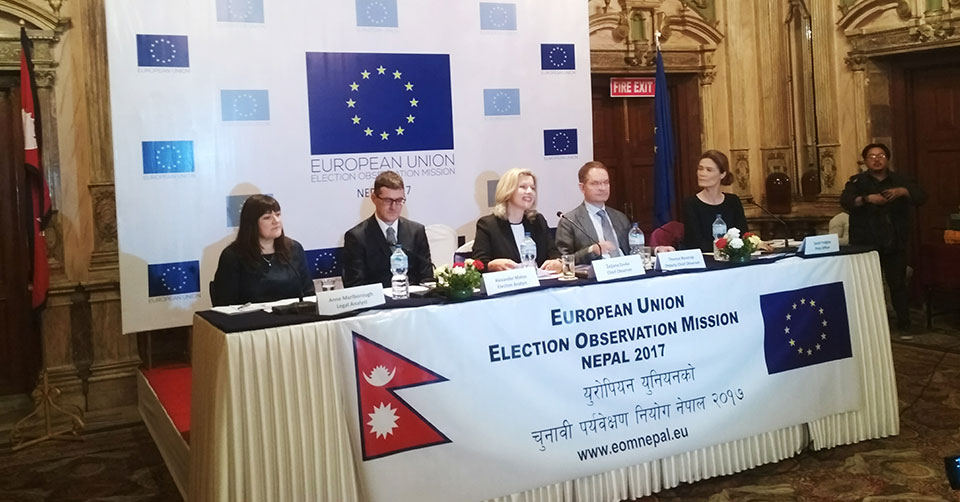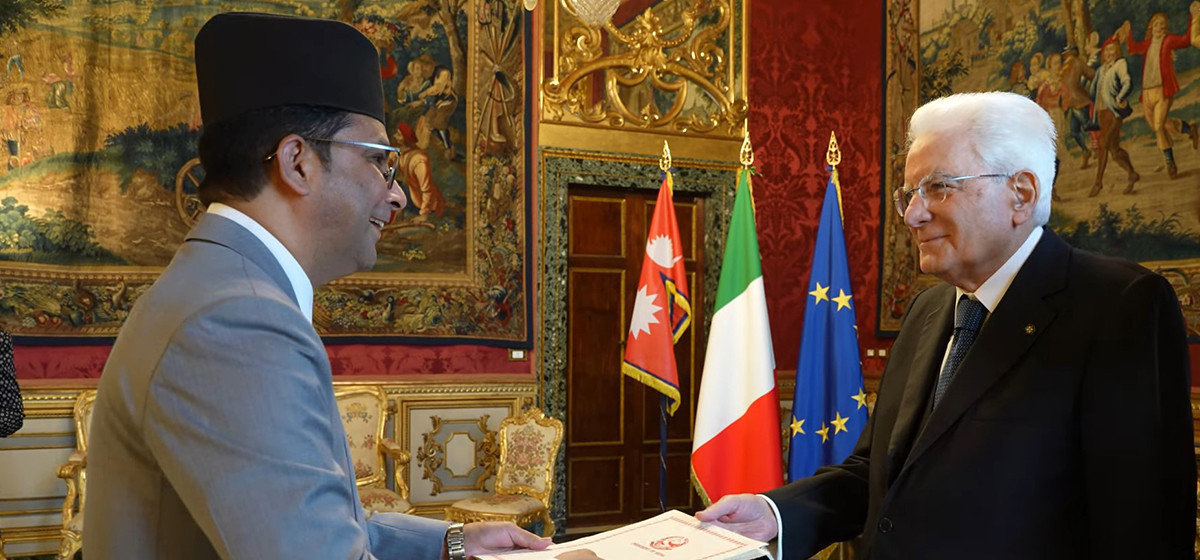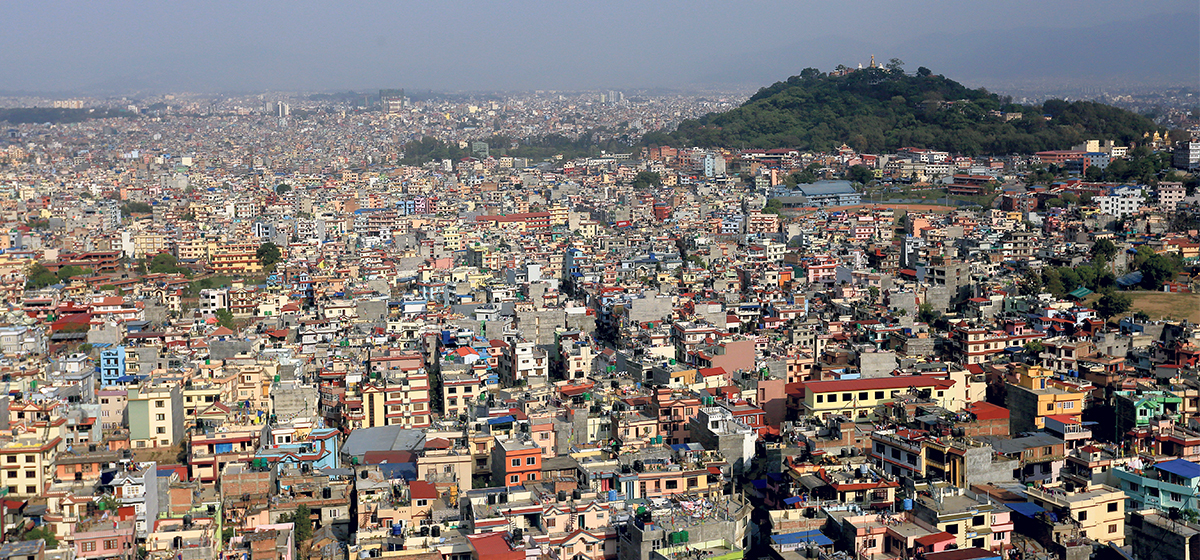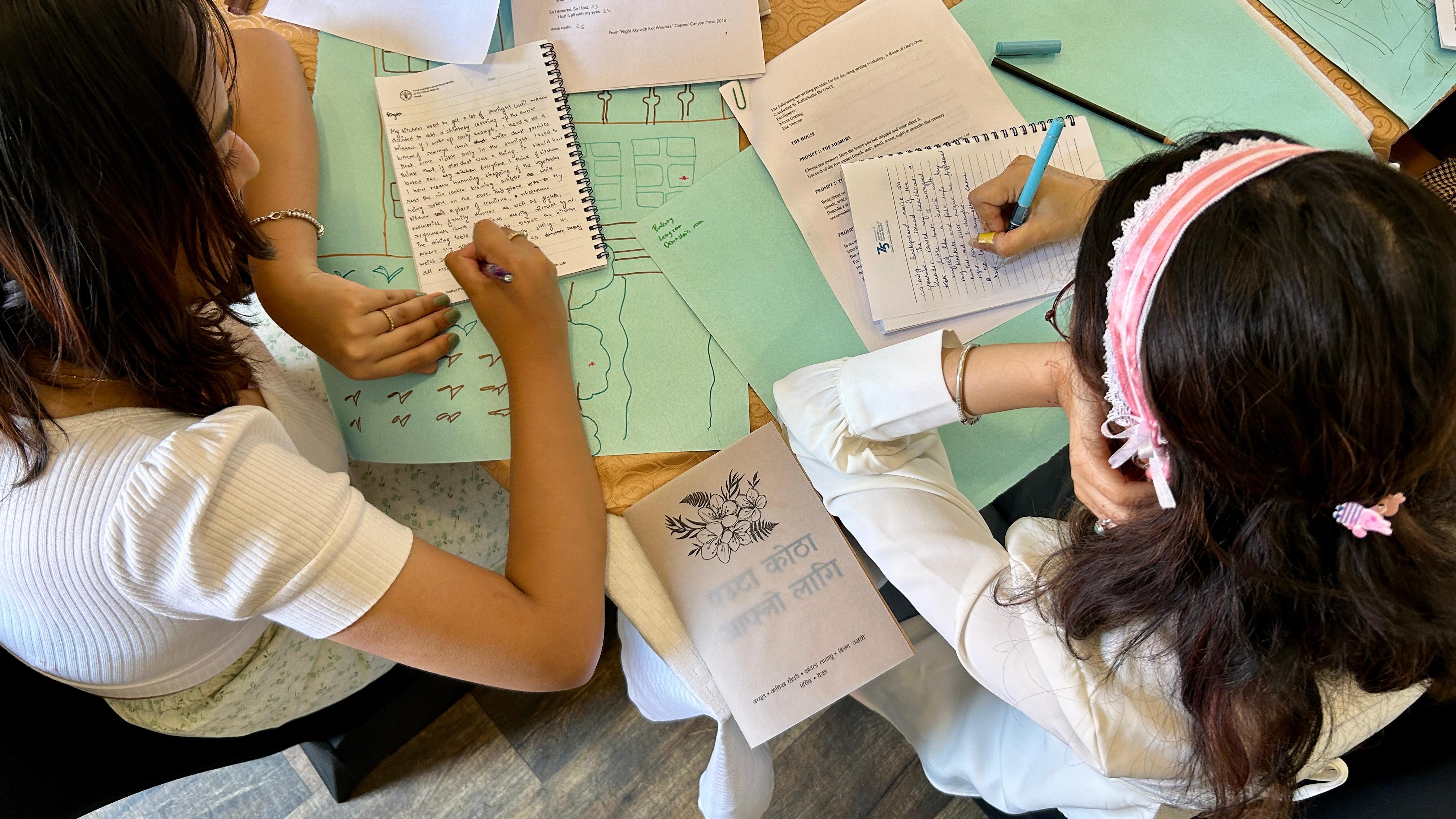
OR
Election Commission lacked transparency, says EU EOM
Published On: March 20, 2018 05:38 PM NPT By: Republica | @RepublicaNepal

KATHMANDU, March 20: EU Election Observation Mission (EU EOM) has accused the Election Commission of lacking transparency and failing to publish critical information on polling center turnout and invalid votes.
Unveiling a final report on Tuesday, a-five-month-long mission, that spent around Rs 3.5 million Euro during the election observation in Nepal, said that the Election Commission failed to provide sufficient information on polling center turnout and invalid votes.
“Although the Election Commission (EC) of Nepal performed its duties impartially, enjoying public confidence, its work lacked transparency," reads the report issued today.
Zeljana Zovko, Chief Observer of the EU EOM, however, lauded the election process saying that the 26 November and 7 December elections represented a key milestone in the implementation of the 2015 Constitution, with the legal framework providing a good basis for the conduct of the elections.
She further said that the political freedoms including the right to vote prevailed during the election campaign, despite a series of violent attacks against candidates.
EU Election Observation Mission has submitted its final report along with 29 recommendations today stressing that first-past-the-post constituency boundaries be reviewed to ensure more equal suffrage, law be enforced in order to stop vote-buying and EC’s transparency be enhanced.
The EU EOM was present in Nepal between 25 October 2017 and 3 January 2018, following invitations from the Government of Nepal and the EC.
The EU mission, that observed elections in as many as 63 districts, had been alleged to have breached its jurisdiction by seeking information from the Kanchanpur District Court.
It assessed the extent to which the electoral process complied with international and regional commitments for elections, as well as with the laws of Nepal.
In total, the mission deployed over 100 observers from all 28 EU member states, as well as Norway and Switzerland.
You May Like This

Election Commission monitors election campaign in Bhaktapur
KATHMANDU, Nov 28: Election Commissioner Sudhir Kumar Shah has carried out on-site monitoring of the ongoing election campaign in Bhaktapur... Read More...

Election Commission prohibits vehicular movement on election day
KATHMANDU, May 13: Vehicular movement will be prohibited on Sunday for the first phase of local level elections. The Election Commission... Read More...

Election Commission presses for election laws
KATHMANDU, Jan 18 : Chief Election Commissioner Dr Ayodhi Prasad Yadav has said that there was no possibility of holding elections... Read More...





Just In
- Nepali announces cricket squad under captaincy of Rohit Paudel for series against West Indies 'A'
- Partly cloudy weather likely in hilly region, other parts of country to remain clear
- Nepal’s Non-resident Ambassador to Italy presents Letter of credence to President of Italy
- 104 houses gutted in fire in Matihani (With Photos)
- By-elections: Silence period starts from today, campaigning prohibited
- A Room of One's Own- Creative Writing Workshop for Queer Youth
- Tattva Farms rejuvenates Nepali kitchens with flavored jaggery
- Evidence-Based Policy Making in Nepal: Challenges and the Way Forward













Leave A Comment